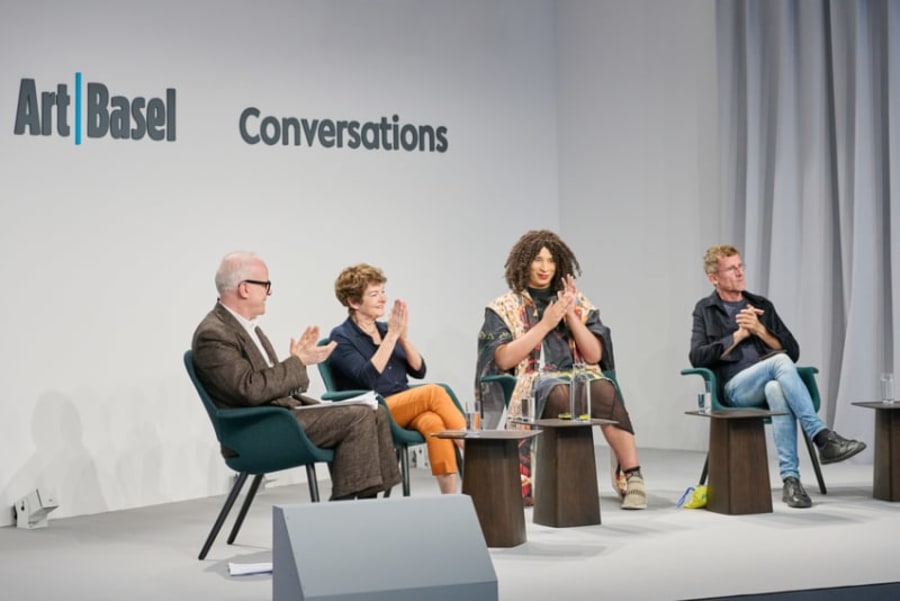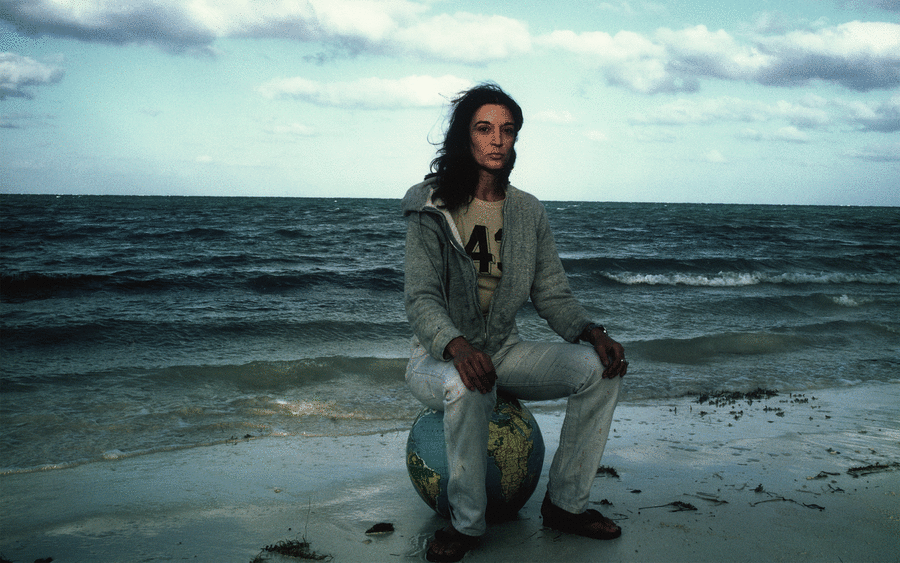For years, Berlin-based artist Danielle Brathwaite-Shirley made digital works depicting the lives of her transgender acquaintances in London. They were striking and well-executed, plugging the many gaps in her community’s historical archives. But, after receiving some well-intentioned criticism about the art’s passivity, she decided to change her approach and only create art that actively engages viewers.
In 2020, Brathwaite-Shirley began producing morally challenging, stylishly lo-fi video games, in which players are compelled to make decisions that directly question their own assumptions. As participants grapple with abstract queries, such as ‘Would you traumatize yourself or your partner’s future?’ or ‘Are some bodies more inherently violent than others?’, they find themselves drawn ever-deeper into the games. ‘In a gallery,’ she explains, ‘people can walk in and say, “Wow! This was gorgeous,” and then just leave. But what’s the point? I want you to feel something real.’
Often centered around the Black trans experience, the artist’s interactive games tackle subjects like transphobia and racism – topics that, despite being some of the most pressing issues of the day, rarely allow for active participation. ‘The questions themselves aren’t so important; I want to make you have a conversation with yourself,’ says Brathwaite-Shirley. ‘So, even if you thought you were the most liberal person in the world, you’ll come to see that you do have intolerances.'
Participants in her latest video-game work, You Can’t Hide Anything (2024), commissioned by Berlin-based LAS Art Foundation for her solo presentation ‘The Soul Station’ – on view at Halle am Berghain, a soaring industrial space next to the dance floors of Berlin’s legendary techno club – won’t just have to contend with their own moral decision-making, but will need to collaborate with other players, too. The game is set in the future, in the aftermath of a revolt against globalized slavery, with up to ten players guiding another player around a temple-like environment.
The game is dense, multilayered, and typical of Brathwaite-Shirley’s work in that the final outcome is not designed to bring about a happy ending. ‘The game is set up in a way that the more you want to look at the art, the more you’ll fail,’ explains the artist. That relationship between effort and the consumption of art forces a heightened engagement with the work and reflects on the complexities of the issues she’s addressing. ‘We need to have discussions and listen to other people’s opinions. Even if it’s frustrating. But it’s only through discussion that we can find out where people are really coming from.’
Duncan Ballantyne-Way is a writer, editor, and art critic based in Berlin.
Danielle Brathwaite-Shirley’s ‘The Soul Station’ is on view at Halle am Berghain from July 12 to October 13, 2024.
Caption for top image: Danielle Brathwaite-Shirley, You Can’t Hide Anything, 2024. Courtesy of the artist.
Published on July 15, 2024.


